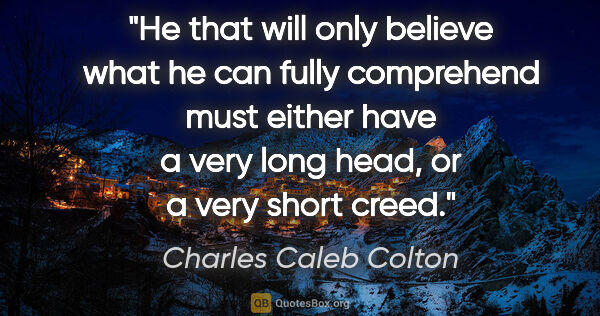He Quotes (page 62)
He doesn't think of doctrines as primarily "true' or 'false', but as 'academic' or practical', 'outworn' or 'contemporary', 'conventional' or 'ruthless'. Jargon, not argument, is your best ally in keeping him from the Church. Don't waste time trying to make him think that materialism is true! Make him think it is strong, or stark, or courageous--that it is the philosophy of the future. That's the sort of thing he cares about.
C. S. Lewis

He had never looked forward to the wisdom and other vaunted benefits of old age. Would he be able to die young—and if possible free of all pain? A graceful death—as a richly patterned kimono, thrown carelessly across a polished table, slides unobtrusively down into the darkness of the floor beneath. A death marked by elegance.
Yukio Mishima
He saw the face of his brother on Thanksgiving night, saw Jim's sad weary eyes, and his heart broke, as if his brother were more important than God himself, or God himself was speaking through Jim as he might speak through anyone put in our inevitable or accidental path, anyone who threatened to call us back to ourselves, who looked at us with eyes that reflected a heart as broken as our own, as fragile, as disappointed.
Anne Rice

He didn’t always tell his father when it happened, because the old man’s face turned mottled blue over his doublet, and unless Will got in first, he would send a runner round all the estates, and the threshing would stop while grousing, reluctant men straggled back for their pikes and swords and mail shirts, taking a long time about it, waiting for Buccleuch the Younger to come up, furious on his sweating horse, and tell them curtly to get back to the fields.
Dorothy Dunnett
He had often felt anguish before, and it would be no wonder if it came at such a moment, when he was preparing, the very next day, having suddenly broken with everything that had drawn him there, to make another sharp turn, entering upon a new, completely unknown path, again quite as lonely as before, having much hope, but not knowing for what, expecting much, too much, from life, but unable himself to define anything either in his expectations or even in his desires.
Fyodor Dostoevsky



